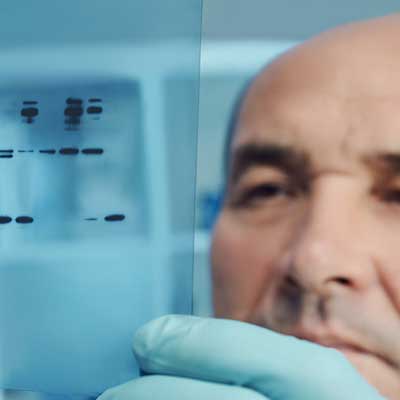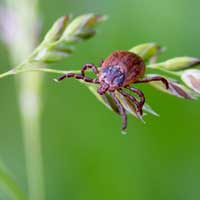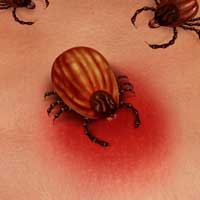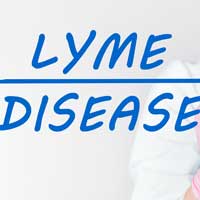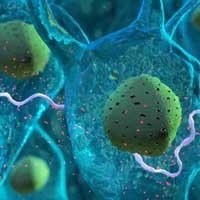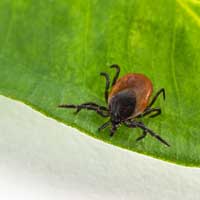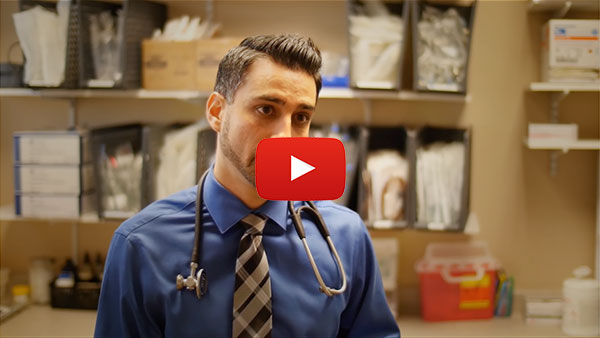More Accurate Testing for Lyme Disease on the Horizon

Nothing can describe the frustration and powerlessness of being sick and in pain with no clear reason why. Lyme disease is a debilitating and painful disease that all too often goes misdiagnosed or produces false negatives on the traditional Elisa and Western blot Lyme disease tests. However, there is hope. Envita has spent the last two decades perfecting Lyme disease treatment and detection as well as progressing a new diagnostic technique that allows for better and more accurate diagnoses of Lyme disease and its coinfections. This method, currently in development by our team, is connected to new genomics technology that may provide far more accurate diagnosing than older tests like Elisa and Western blot, along with providing more useful information than current PCR tests for infections. By looking at the particular genomic information of a patient we are not only able to identify more conclusively the presence of Lyme disease, but can also identify specific co-infections and secondary infections unique to each individual patient. Hopefully, when using this new testing method doctors will not only be able to conclusively identify the presence of the infection but also quantify the results so that a patient, for the first time, can track improvement with accuracy. This new test may also aid in selecting the best drugs to target each organism in a patient's chronic Lyme disease complex, helping to streamline treatment for chronic Lyme disease patients. Genomic testing not only allows for a better diagnosis, but also paves the way for a personalized, comprehensive treatment plan and quantifies the amount of infections present. This new developmental test is a collaborative effort with Envita medical team and pathologists who specialize in infectious disease testing. More data and validation is still needed to bring this test to patients, but we hope it may become the gold standard for testing and treating tick-born infections and a powerful tool in helping patients and doctors with chronic Lyme disease treatment.
Disclaimer: Individual results will vary. Envita makes no guarantees for outcomes. Each patient case is unique. Please consult your doctor before making any changes to your medical treatment. Not every patient is a candidate for care or achieves these results. Treatments used in this case may not all be FDA approved for the treatment of this condition.
The problem in current testing for Lyme disease is the high likelihood of receiving a false negative. A false negative occurs when a test produces results indicating that a disease is not present when, in reality, it is. Western blot and Elisa are the standard testing methods used by conventional doctors to diagnose Lyme disease, but these older tests may have a high chance of producing false negatives because of the method they employ to produce their results. Western blot and Elisa, though old and outdated, are the only option for most doctors to test with and can be highly flawed. These older tests look for the presence of certain antibodies to produce a positive result when searching for Lyme disease, however, Lyme disease patients are often immune compromised and their bodies may not be producing the anti-bodies necessary for conventional medicine to conclusively identify the existence of Lyme disease. In addition, these tests do not quantify the results so patients and doctors can't identify the number of copies each infection type present has produced, and therefore are unable to provide conclusive data for therapeutic removal of the infection. Lyme disease patients are often caught in a vicious cycle of immune depression that begins with initial infection. It is important to understand that when bitten by a tick with Lyme disease, co-infections that the tick may possess are also transferred with Borrelia burgdorferi, the bacterial spirochete known for causing Lyme disease. Once Borrelia and these co-infections enter the patient's body they release a multitude of endotoxins, neurotoxins and biotoxins that, among many other negative actions, confuse the immune system and cause it to potentially attack its own cells resulting in autoimmune-like symptoms and chronic inflammation throughout the brain and body. The confusion caused by toxins, and other mechanics working to depress the immune system, makes the patient's body more susceptible to opportunistic secondary fungal, viral, parasitic, and other bacterial infections which work to further impair the patient's immune system. With the immune system severely impaired by Lyme and its co-infections, the traditional tests may not be accurate in diagnosing. To make matters worse the infection, coinfections, biotoxins, endotoxins, mycotoxins, neurotoxins, autoimmune attacks, and opportunistic secondary infections can produce a multitude of symptoms making it difficult for a doctor to recognize that Lyme may be a possibility. This all combines to make a very confusing and frustrating experience for the patient. However, with Envita's potentially new testing method doctors can identifying the best treatment methodologies based on the infections that are present in each patient allowing for extreme personalization to care, and great improvement of doctor's ability to diagnose and treat Lyme disease.
Cross referencing the patient's test with known data on the DNA and RNA sequences of diseases will reveal the existence of Lyme disease and its co-infections and more effectively aid with the developing of a treatment plan.
Envita's method of testing for Lyme disease is based on genomic information from the patient's blood, urine, mucus, stool can provide important DNA information. By testing the genetic information inside the patient, Envita can see what kind of DNA and RNA may be present in the patient without having to synthetic amplify the genes for detection, like with PCR testing that is currently used by many integrative clinicians. Cross referencing the patient's test with known data on the DNA and RNA sequences of diseases will reveal the existence of Lyme disease and its co-infections and more effectively aid with the developing of a treatment plan. By testing for the genes of infectious organisms and quantifying the data we hope to be able to gain a duel advantage in fighting against Lyme disease, better quality testing, better information on quantity, and better drug and non-drug targets for personalized treatment. Genetic testing can be much more accurate because it can tell more definitively if the patient has Lyme disease through the presence of Lyme DNA and plasmids, it is not reliant on detecting antibodies that may or may not be present. By looking at the quantity of infections present we can determine what infections are most prevalent; this information helps determine a treatment plan that is best suited to attack the infections specific to the patient and allows us to track improvement of the patient's condition. Genomic testing permits for more accurate detection of Lyme disease, the ability to better identify and quantify coinfections to better treat patients, and the availability of quantified data for tracking improvement of the patient. Also, quantifiable data gives hard evidence of the existence of chronic Lyme disease aiding in spreading awareness, hopefully producing a better future for those who suffer from this debilitating disease. This new process for testing chronic Lyme disease is being developed by Envita medical team in conjunction with pathologists who specialize in infectious disease diagnostics, and though it is only in the beginning phases we will keep you up to date on the validation process as it progresses.
Western blot and Elisa testing can be unreliable and most physicians lack the clinical experience and are inadequately trained to properly diagnose and treat patients with chronic Lyme disease. However, this new genomic testing brings a better way to diagnose and treat Lyme disease and provides hard quantified data that will aid in targeted treatments, tracking improvement, and spreading awareness of chronic Lyme disease. At Envita we want to improve the lives of all our patients and bring them back to full vitality, please contact us at envita.com or call us at 1-866-830-4576 with any further questions, we are here to help and would be happy to do so.








